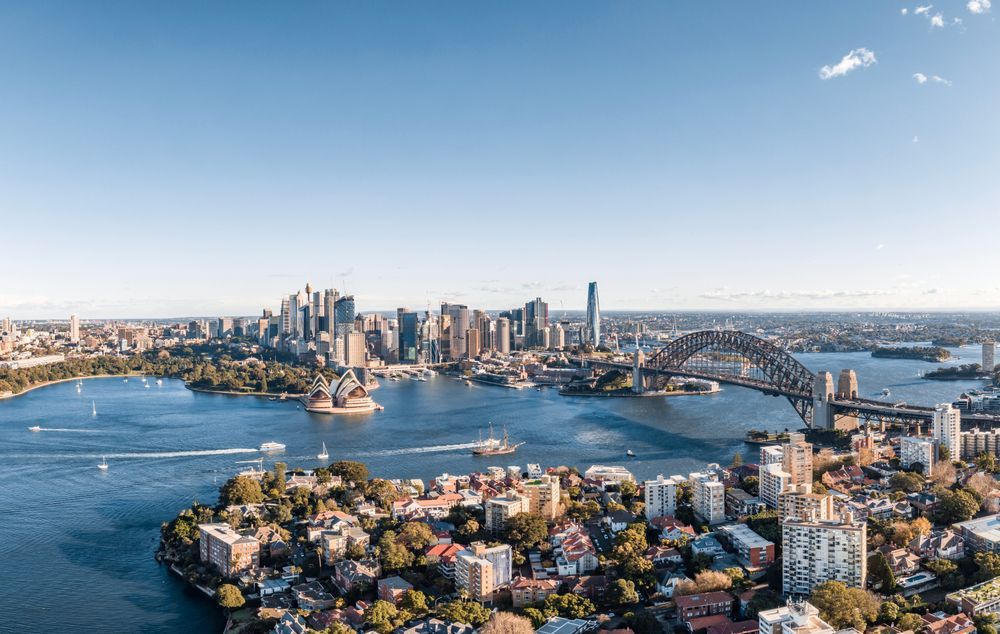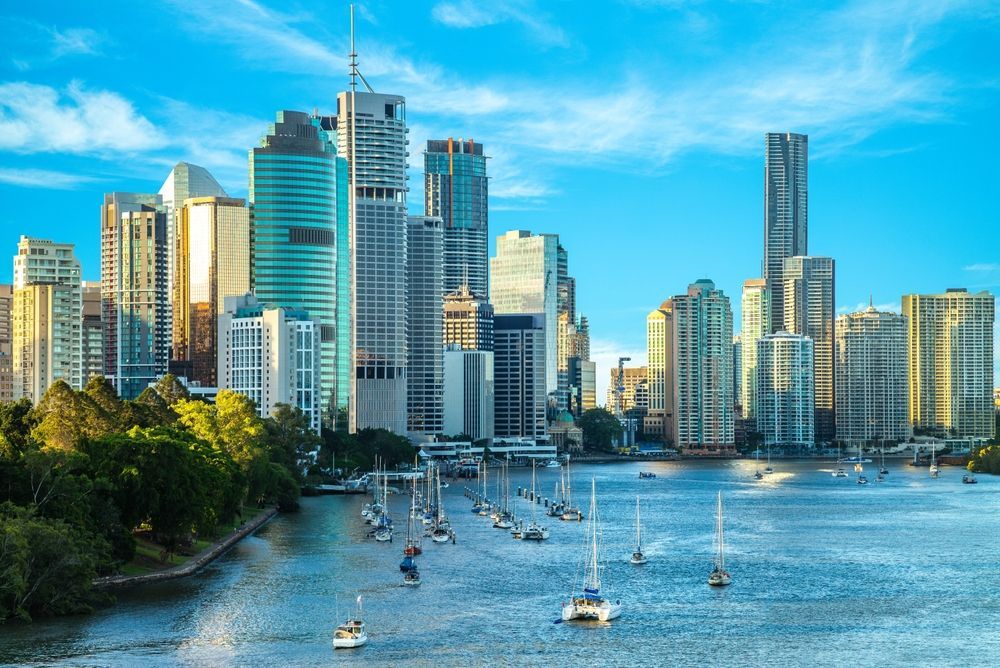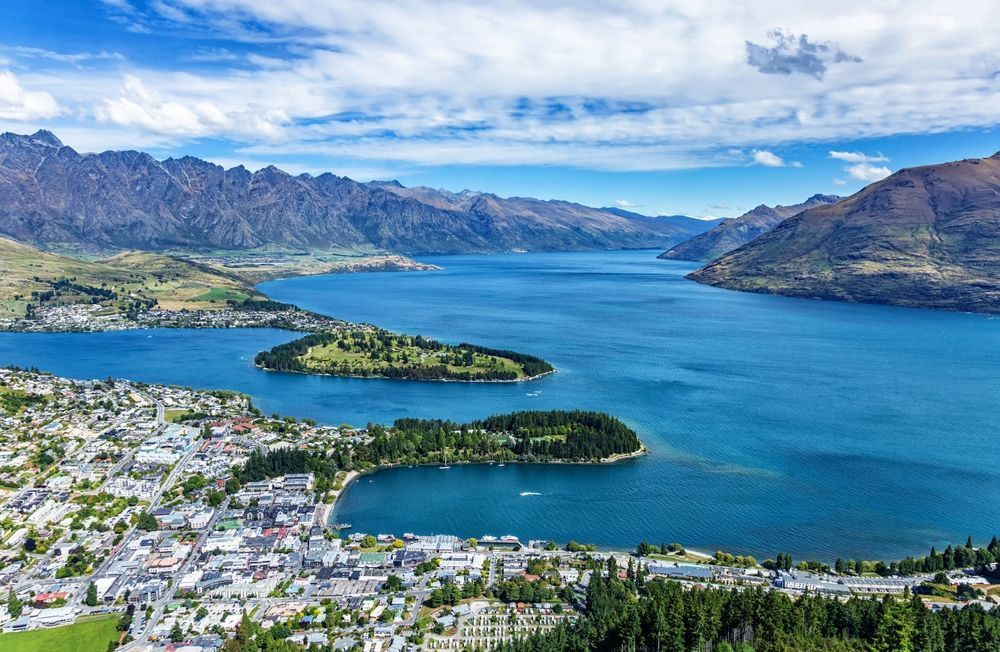Opening a Bank Account & Managing Your Finances in New Zealand
Planning a move to New Zealand? Get a head start on your finances with our guide to the best banks for expats, the services they offer, and how you can open a local account there.
If you are planning a move to work in New Zealand, you will need to get your finances in order as soon as possible and understanding the banking and taxation systems is crucial.
New Zealand's banking system is sophisticated and comprehensive with excellent standards of customer service. Opening a bank account is a straightforward process, Visa and Mastercard are accepted everywhere and there are many conveniently located ATMs which can be used to withdraw cash from local and foreign accounts.
Money in New Zealand
The currency of New Zealand is the New Zealand Dollar (NZD) which is divided into 100 cents. In New Zealand it is written with the symbol $ or NZ$ to distinguish it from other dollar denominated currencies. A single dollar is often locally called a "Kiwi".
Notes: 5 NZD, 10 NZD, 20 NZD, 50 NZD, 100 NZD
Coins: 10 cents, 20 cents, 50 cents, 1 NZD, 2NZD
Banks in the country offer many account options for expatriates, but which one would be the most suitable for your needs? In this guide, we outline the best banks for expatriates in New Zealand, how you can open an account, what fees you can expect to pay, and how you can send money to the country from overseas.
Banking in New Zealand: The Best Banks for Expats
Banking in New Zealand is uncomplicated and the local New Zealand banks, as well as building societies and credit unions, offer adequate options aimed at expatriates, but if these do not suit your needs, you may want to explore foreign or international banks operating in the country. The major banks are listed below. All banks operating in New Zealand must be registered with the Reserve Bank of New Zealand. The full list of banks registered in New Zealand is available on the Reserve Bank of New Zealand web site.
Local New Zealand Banks:
- Australia and New Zealand Banking Group (ANZ)
- Bank of New Zealand (BNZ)
- Auckland Savings Bank (ASB)
- Westpac
- Kiwi Bank
The Major Foreign Banks:
- HSBC New Zealand
- Citibank New Zealand
- Bank of India New Zealand
- China Construction Bank New Zealand
- Bank of Tokyo Mitsubishi
It is advisable to review all options thoroughly before committing to open an account with a bank because banks vary considerably in the fees they charge for particular services such as transactions or monthly statements. Expatriates will usually be offered a current account, savings account or a package which includes both. We have summarised the offerings from the three largest local banks - Bank of New Zealand, Auckland Savings Bank, and Australia and New Zealand Banking Group.
Bank of New Zealand (BNZ)
Established in 1861, BNZ is one of the oldest banks in the country and is now a subsidiary of the National Australia Bank. Its wealth management services and multi-currency accounts are targeted towards expatriates in New Zealand.
Savings accounts
The most basic savings account at BNZ for expats is the YouMoney account, offering unlimited transactions and withdrawals. You can set this account up for yourself, family members, children, students, apprentices, or graduates and you can open as many as 25 YouMoney accounts without any monthly account fee.
For making in-store and online payments, you can link your account to a Flexi Debit Visa, and use that with Google Pay and Apple Pay. You can also apply for a BNZ credit card that earns rewards or a low interest rate.
Other savings accounts at BNZ offer an annual interest rate of 0.05%, with a few of these offering an annual bonus rate at 0.15%.
Opening an account is straightforward and applications for expat accounts can be made on line.
Investments
Bank of New Zealand offers a wide range of investment options for expats, such as managed funds accounts and term deposits. You can lock your savings into a term deposit for a minimum of 7 days and a maximum of 5 years, with an investment of at least $2,000 NZD ($1,455 USD).
With a BNZ YouWealth managed funds account, you will be able to choose from 5 different funds: Growth Fund, Balanced Growth Fund, Balanced Fund, Conservative Fund, and Moderate Fund. The minimum investment time frame for these funds ranges from 3 years to 10 years, but the minimum investment requirement is $1,000 NZD ($727.79 USD).
Managed funds accounts are more flexible and provide better potential returns than term deposits, but at a cost. Term deposits, on the other hand, don’t have any setup or management fees.
Home loans
BNZ offers home loans at fixed and floating rates, and also a mixture of both.
Classic home loan rates are fixed, but you need to have a certain amount of equity to avail this loan. The bank’s Standard home loan rates are a combination of fixed and floating rates, making the rates higher than those of Classic home loans. Other home loan options include revolving credit and offsetting ones, so if you’re looking to buy a property after moving to New Zealand, you can get a head start now.
Insurance
At Bank of New Zealand, you’ll find the following insurance options:
- Life insurance
- Car insurance
- Boat insurance
- Home insurance
- Travel insurance
- Contents insurance (covering for the loss of your valuables like jewellery, sports equipment, or cameras)
Auckland Savings Bank (ASB)
With more than 300 ATMs and 100 branches spread across the country, ASB is another well-known New Zealand bank catering to expats. Their offerings include:
Foreign Currency accounts
ASB allows you to set up a Foreign Currency account, making it easier for you to handle your finances between New Zealand and another country, without any monthly account fees.
There’s a catch, though. You will need a minimum opening balance for this account. For example, if your Foreign Currency account is in the US dollar (USD), the minimum opening balance would be $5,000 USD.
Savings packages
At ASB, you will come across several different account packages specifically designed for people with different requirements. Some of these packages have benefits like zero transaction or base fees. For expats, the best package is the Streamline Introduction one, where you won’t have to pay any fees on a new Visa Debit card for the first six months.
Insurance
The insurance products offered by ASB include:
- Life, loan and income protection insurance
- Contents and home insurance
- Travel insurance
- Health insurance
- Business insurance
Loans and mortgages
ASB provides home loans, rural or business loans, and personal loans to expats.
The annual home loan interest rates are fixed at 2.25% for 12 months and 2.59% for 24 months, with a variable rate of 4.45%. And if you want to start a business in New Zealand after moving there, ASB helps you calculate your business loan repayments.
Australia and New Zealand Banking Group (ANZ)
This is definitely the largest banking service provider in the country. Expats can use:
Savings accounts
The ANZ Online Saver lets you access your savings online anytime and earn interest at an annual rate of 0.35%, so it’s quite flexible. With the ANZ Progress Saver, you’ll get a higher interest rate of 0.40% if you can maintain minimum savings of $10 NZD ($7.28 USD) regularly, and not withdraw any money in a month.
Business banking
From simple business savings accounts and business transaction accounts to specialist business accounts, ANZ has got a lot of business banking options up their sleeve if you intend to open a business.
Insurance
The insurance products offered by ANZ are:
- Income protection
- Landlord insurance
- Car insurance
- Contents and home insurance
- And, of course, life insurance
What’s an EFTPOS card, and how is it different from a debit card?
Banks in Australia and New Zealand commonly offer an Electronic Funds Transfer at Point of Sale (EFTPOS) card when opening your bank account. The EFTPOS card is pretty much like a debit card, as both cards use money from your existing bank account. However, you can’t use an EFTPOS card outside New Zealand and Australia or for on line payments whereas debit cards can be used almost anywhere.
On the upside, EFTPOS cards are free of charge, whereas debit cards come at a cost (more on that below).
So, if you plan on keeping your banking transactions confined to Australia and New Zealand, and you’re sure you don’t need to make any online payments, you can select a bank account with an EFTPOS card.
What do I need to open a bank account in New Zealand as a non-resident?
If you haven’t moved to New Zealand yet, you can still open a bank account in the country, but without an address, of course. Bear in mind, though, that you will have to provide an address after moving to the country, so that your account can be activated.
To open a bank account in New Zealand as a non-resident, you will need:
- A valid passport or your New Zealand identity document
- Proof of your permanent address in the country. You can provide your present address overseas, if you are yet to make the move to New Zealand.
- Proof of your residence visa, student visa, work visa, or any visa that allows you stay in New Zealand for some time.
- Your New Zealand Inland Revenue (IRD) number. After applying for the IRD number online, you’ll receive it in 2-10 working days by text, post, or email. In case you haven’t received one yet, you can use your tax declaration from your home country instead.
Can I set up an account from abroad?
Yes, you can. In fact, it would be better to set up your New Zealand bank account while you’re still in your home country.
Why, though? Because this may cost you less to move your money from your overseas account to your new bank account, than if you had opened an account after moving to New Zealand. Just keep in mind that the New Zealand bank will need at least 10 days to process your account request.
Once you’re in the new country, you’ll have to visit a bank branch and verify your permanent address as well as identity, to activate your account.
Of course, the requirements may vary from one bank to another, so be sure to check with your chosen bank whether you need to fill up a migrant banking application form or fulfil any other criteria.
What about minimum deposits and banking fees?
Each banking product in New Zealand has its own minimum deposit requirements, if any. These can range between $100 NZD and $1,000 NZD ($72.68 USD and $726.80 USD, respectively). Thankfully, most banking options in the country don’t have any minimum deposit.
As for banking fees in New Zealand, you can’t avoid:
- Overseas fees for using EFTPOS cards and ATMs
- Charges if your bank can’t process your electronic payments or checks
- A one-time fee to have your range of banking services altered
- A one-time cost of your debit or credit card at around $10 NZD ($7.27 USD)
How can I send money to New Zealand from overseas?
After opening an account in New Zealand, you might want to send money from your bank account in your home country to your new account. Certainly, many New Zealand banks can help you initiate an international bank transfer, but they will also add on numerous transaction fees, and may not offer the most favourable exchange rates.
If you’re looking for a simpler, more convenient and cost-effective way of sending the money, consider using a currency broker which offers an international money transfer service at competitive exchange rates without third party fees so you can be sure that more of your money makes it into your New Zealand bank account.
New Zealand Taxation
For an overview of New Zealand's taxation system, read our guide about Managing Your Taxes in New Zealand.
Applications for Medical Jobs in New Zealand
Candidates looking for jobs in the medical and healthcare sectors in New Zealand are invited to register a CV and contact us to discuss job opportunities. Currently advertised jobs can be viewed on our website where applications can be made by uploading a CV.
Information about the process of registration with the Medical Council of New Zealand is detailed in our article covering the pathways to general, vocational and special purpose registration.
19 August 2022
Share this post on Social Media
Leave a Comment
SEARCH JOBS
Ready for a change? Whether you’re looking for higher compensation, greater autonomy, a better work-life balance, or just a change in scenery, we have job opportunities in wonderful locations across the world. Start your medical or dental job search today and embark on your next career move.
SIGN UP FOR JOB ALERTS
We believe everyone deserves to find their dream job. Be the first to hear about new practice opportunities in exciting locations across the world Simply sign up for job alerts in your chosen field, and we will email you when a new job in your specialty becomes available.


















